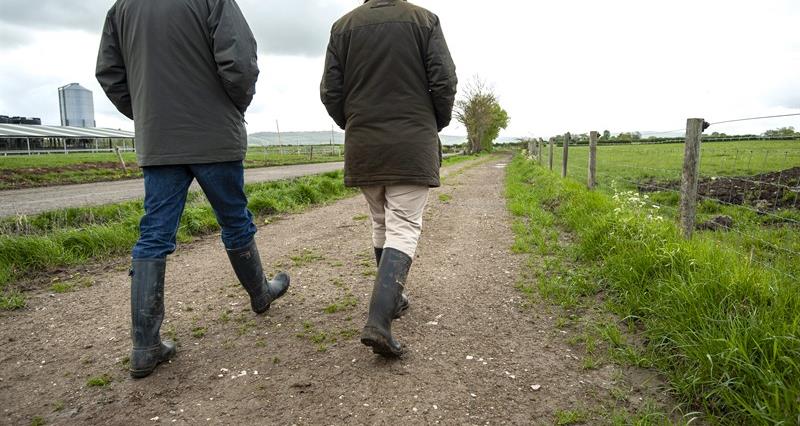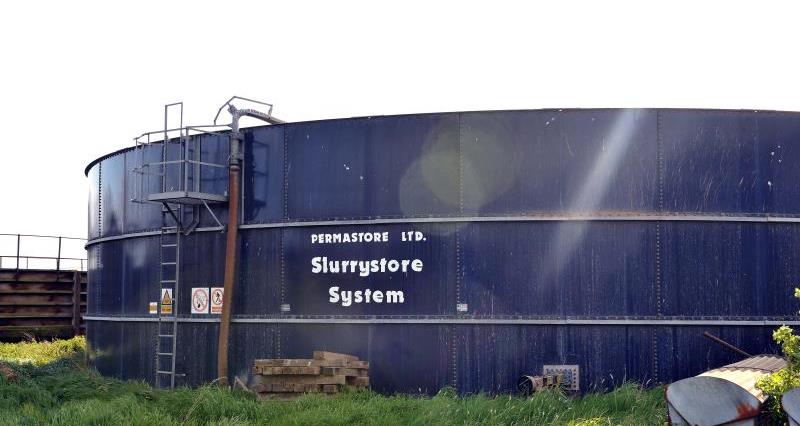You may have heard that the EA (Environment Agency) has been working to increase its inspection rates for agriculture. An additional 84 Agricultural Regulatory Inspection Officers have been employed across England to undertake more farm inspections and provide support to farmers in protecting the environment.
As part of this expanded coverage, the EA has been focusing on delivering an advice-led approach that aims to help farmers make improvements, rather than seeking prosecutions. This approach, in coordination with Catchment Sensitive Farming, has helped to deliver benefits to farmers across England.
What you need to know
Notification of a pending inspection by an EA Agricultural Regulatory Inspection Officer can be stressful. So we have been working with the EA to summarise what happens during an inspection and offer insights on how to prepare for a visit.
EA officers check that farmers are complying with environmental regulations, including those controlling slurry, silage, nitrate, and diffuse pollution.
Farms are chosen for a variety of reasons, usually due to concerns over the water quality in the local rivers. Being selected for an inspection doesn’t mean you’ve done something wrong.
Many of the EA inspections that take place, are selected on a risk basis. The EA is continually testing and collating data on main watercourses that have a high, or increasing, level of nitrates and or phosphates.
Therefore, the EA may routinely visit all farms in a river’s catchment area and advise on ways to improve farming practices or look for any potential pollution issues.
“We are not here to catch you out, we are here to help you understand what the regulations mean, assess if you are complying with them and, if you aren’t, to work with you to make changes to protect the environment and reach compliance.”
Senior EA Officer Karen Price
“We are not here to catch you out, we are here to help you understand what the regulations mean, assess if you are complying with them and, if you aren’t, to work with you to make changes to protect the environment and reach compliance,” says Senior EA Officer Karen Price.
How can I prepare?
You’ll be contacted by either phone, email or post to arrange a date and time. The officer conducting the inspection will send you a letter confirming arrangements and explaining the documents and areas they’ll need to see.
If you can provide any documents by email ahead of the inspection this will usually help reduce the time an officer will spend on your farm. The documents they could ask for include a Nutrient Management Plan with soil samples, risk maps, drainage plan, NVZ documents (if applicable) and slurry store calculations.
What should I expect?
The whole inspection usually takes between one and three hours, but may be longer depending on the size of your farm and the advice needed. The EA will look at:
- Fuel storage: Condition of both tank and hoses, age, bunding, spill kits and any signs of potential pollution.
- Silage clamps: Condition, age, flooring, drainage, effluent collection, and any signs of potential pollution or run-off.
- Slurry storage: Condition, age, structure, overtopping, quantity of storage and any signs of potential pollution or run-off escaping.
You can find details of rules on silage, slurry and agricultural fuel oil storage by visiting: Silage, Slurry and Agricultural Fuel Oil storage - what are the rules | NFUonline
- Farmyard manure store: Condition, age, flooring, drainage, effluent collection, and any signs of potential pollution or run-off escaping.
- Fields: Checking that reasonable precautions are being taken to prevent soil erosion and run-off, location of livestock feeders, poaching near watercourses and large areas of poaching within the fields, and that non spreadable areas are being adhered too.
- Find details of the Farming Rules for Water at: Applying the farming rules for water | GOV.UK
- For advice on best practice visit: Code of Good Agricultural Practice for Reducing Ammonia Emissions | GOV.UK
- General yard drainage: Clean and dirty water separation, clean draining areas kept clean, condition of gutters and downpipes, no signs of contaminants.
- Chemical storage: Looking at how and where it is stored.
- Pesticide handling areas: Where the sprayer is filled and cleaned, water sources, washings disposal, training.
- Further information on capital item payment rate changes can be found at: Capital item payment rate changes from 5 January 2023 | GOV.UK
- More guidance on chemical storage can be found at: Chemicals - safe handling, storage and usage | NFUonline
- Guidance on storing pesticides can be found by visiting: Guidance on storing pesticides for farmers and other professional users | HSE.GOV.UK
Non-compliances
Should any non-compliances be found, the officer will discuss the actions needed and agree an appropriate and reasonable timeframe for completion.
What happens afterwards?
You’ll receive a post-inspection report, usually within two weeks. This will outline any actions required and the completion timeframes. If circumstances mean you are no longer able to meet the agreed timeframe you should contact the officer to let them know and agree a suitable extension, if possible.
The EA uses an advice-led approach to help farmers comply with regulations, but they also have a range of alternative actions including enforcement tools. The post-inspection report will make it clear when this is the case.
Don't panic!
"My advice to farmers who are perhaps nervous about the farm inspection is, firstly, don’t panic! The letter they send will include a list of all the information they might need, including your general farm records."
Lincolnshire farmer Emma Billings
Lincolnshire farmer Emma Billings had her first EA farm inspection with Caroline Hook, an agriculture regulations inspection officer.
Emma said: "Caroline checked various paperwork and I gave her a tour of the farm. It went really well. Caroline checked that we were correctly complying with farming regulations, from preventing nitrate pollution to the way we stored oil and silage.
"We talked about how safe farming practices can help to limit pollution and she advised us on how some minor issues could be improved. I found this particularly useful as she gave me advice specific to my farm, and a reasonable deadline to get the work done by.
"My advice to farmers who are perhaps nervous about the farm inspection is, firstly, don’t panic! The letter they send will include a list of all the information they might need, including your general farm records.
"This is mostly the same as what we do for our annual Red Tractor inspection. Also, the inspectors are very helpful. They are there to support you, to listen to your concerns and offer practical advice which will specifically benefit you and your farm."


